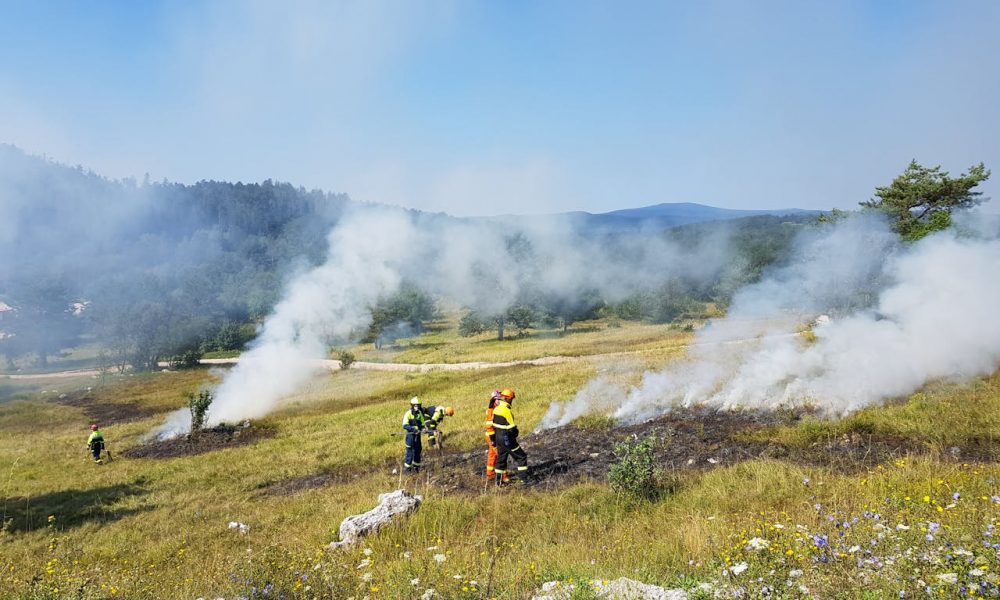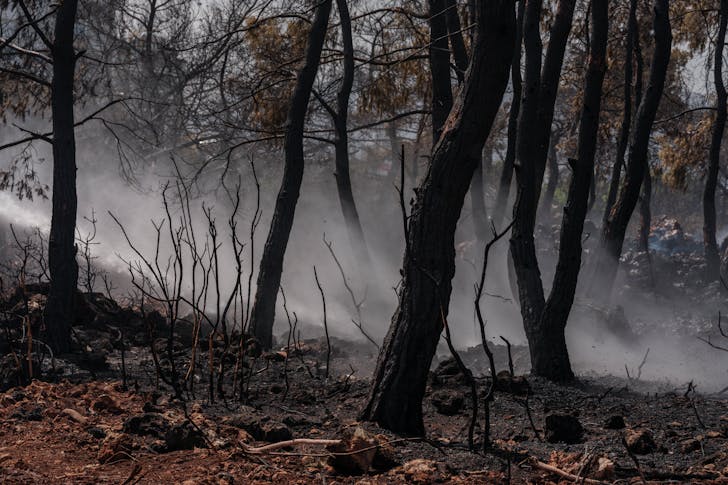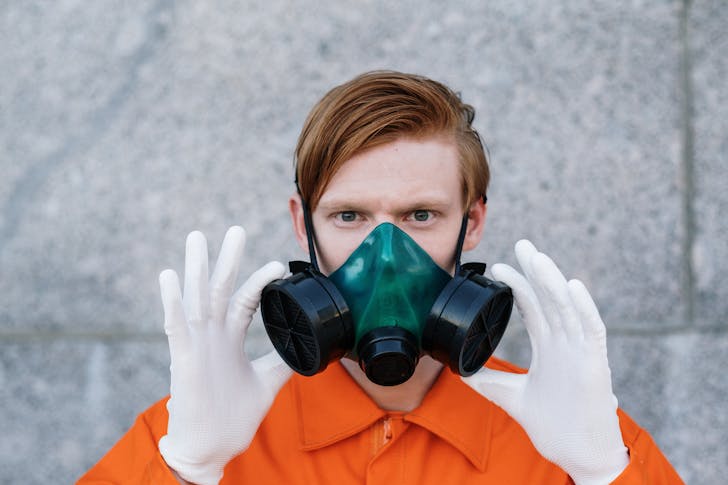
Why Breathing in Wildfire Smoke Is Dangerous

Breathing in wildfire smoke is downright dangerous for your health. The tiny particles in the smoke can wreak havoc on your lungs, irritate your eyes, and even impact your heart. However, it is not just a problem for people with asthma or other health conditions. Wildfire smoke can harm anyone who breathes it in for too long.
But here is the good news: you can take simple steps to protect yourself and your loved ones when the air outside turns thick and smoky.
Why Breathing in Wildfire Smoke Is So Harmful
When wildfires rage, they send dangerous particles and chemicals into the air. These particles, known as PM2.5, are tiny enough to get deep into your lungs and even your bloodstream. Breathing in wildfire smoke can trigger coughing, shortness of breath, and serious health problems like heart attacks or worsening asthma.

Engin / Pexels / Long-term exposure to PM2.5 can damage your lungs over time, especially for kids, seniors, and people with preexisting conditions.
That is why it is critical to take proactive steps to protect yourself, even if you feel fine at first.
Stay Indoors When Smoke Levels Rise
When the air outside looks hazy and smells smoky, staying indoors can shield your lungs from the worst of it. Breathing in wildfire smoke is significantly reduced when you are inside a well-sealed space. Keep your doors and windows shut tight, and don’t rely on window fans as they can pull smoky air indoors.
However, if you have air conditioning, use it, but make sure the system’s filter is clean and in good condition. Avoid activities that could worsen indoor air, like frying food or vacuuming, as these can stir up particles already in your home.
Stay Aware of Air Quality Levels
Breathing in wildfire smoke becomes more likely when air quality deteriorates. So, it is crucial to monitor conditions in your area. Check local air quality reports online or through apps like AirNow or PurpleAir.
These tools use a color-coded system to show you how safe or unsafe the air is.
Plan your activities around air quality updates. If the air is unhealthy, avoid outdoor exercise or any strenuous activity that makes you breathe harder.
Wear an N95 Mask Outdoors
If you have to go outside when the air is thick with smoke, an N95 mask can be a lifesaver. These masks are specifically designed to filter out the fine particles found in wildfire smoke. Surgical masks or cloth masks won’t cut it as they don’t provide the same level of protection.

Cotton Bro / Pexels / Wear an N95 mask. Make sure your mask fits snugly over your nose and mouth, leaving no gaps.
If it feels loose, adjust it or switch to a better-fitting one. While it might feel uncomfortable at first, the protection is worth it. Breathing in wildfire smoke is far riskier than a few minutes of wearing a mask.
Create a Clean Room in Your Home
If wildfire smoke lingers for days, consider setting up a clean room in your home. This is a space where you can control the air quality and keep it as clean as possible. Pick a room with few windows and doors, like a bedroom, and use a portable air purifier with a HEPA filter to remove harmful particles.
Seal any gaps where smoke could seep in. Use towels to block cracks under doors and plastic sheeting to cover windows if necessary. Keep the clean room free of smoke-causing activities, and spend as much time there as possible.
Keep an Emergency Kit Ready
Wildfire smoke doesn’t always come with much warning. So, it is smart to be prepared. Stock up on essentials like N95 masks, air purifiers, and extra filters ahead of fire season.
Having these items on hand means you won’t scramble to find them when you need them most. Also, keep a few days’ worth of food and water in case you need to stay indoors for an extended period.
More in Medicare
-
`
Top 5 Best Places for Skiing Around the World
When it comes to adventure and winter sports, finding the best places for skiing can take your vacation to the next...
October 10, 2024 -
`
A-List Celebrities at Milan Fashion Week Spring 2025
The excitement of Milan Fashion Week Spring 2025 is palpable as the fashion elite gather to celebrate creativity and style in...
October 1, 2024 -
`
Polish Government to Rise Minimum Wage By 8% in 2025
The Polish government’s minimum wage is set to increase by 8% in 2025. While workers and unions welcome the move, many...
September 25, 2024 -
`
Kidney Infection: Causes, Symptoms, Prevention & Treatment
Kidney infections – AKA pyelonephritis – are serious health conditions that can lead to severe discomfort. But does kidney infection cause...
September 19, 2024 -
`
What to Do in Ubud, Bali – Top Attractions & Activities
Ubud, the cultural heart of Bali, offers an array of activities that capture the essence of this enchanting island. From exploring...
September 11, 2024 -
`
Important Aspects of Your Health You Should Pay Attention To
When thinking about your health, it’s crucial to consider the key factors that create a solid foundation for your well-being. These...
September 6, 2024 -
`
6 Creative Birthday Party Ideas For Adults
Gone are the days when birthdays were just about cakes and candles. Now, it is all about creating memorable experiences that...
August 28, 2024 -
`
Are Chanel and Johnny leaving Days of Our Lives? Here Are the Facts
Fans of Days of Our Lives have been on the edge of their seats, wondering if Chanel and Johnny are leaving...
August 20, 2024 -
`
How Much Does Massage Business Make? A Profitability Breakdown
Curious about how much does massage business make? The massage spa industry in the United States is a significant sector, with...
August 14, 2024















You must be logged in to post a comment Login